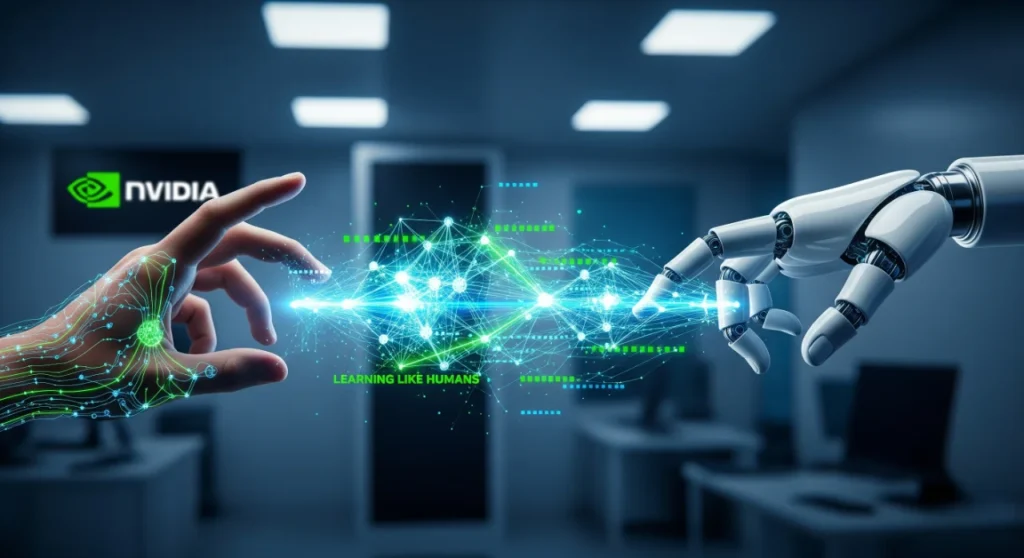NVIDIA just took a huge step in robotics. At SIGGRAPH this week ,the company introduced a suite of physical-AI tools—including Cosmos Reason, Transfer, Predict models, real-world reconstruction libraries, RTX Pro Blackwell servers, and DGX Cloud—to help robots understand the physical world through reasoning and simulated training.
These tools allow developers to simulate physics-rich environments, generate tailored synthetic data, and build digital twins—all adapting to lighting, weather, and real-world detail faster and at lower cost.
Key Takeaways:
- Cosmos Reason lets robots “think” with chain-of-thought visual reasoning.
- Transfer & Predict models produce diverse synthetic visuals for training.
- New Omniverse SDKs enable faithful digital-twin creation from sensor data.
- RTX Pro Blackwell servers and DGX Cloud power scalable robotics compute.
- Early adopters include Agility Robotics, Figure AI, 1X, and more.
NVIDIA’s physical-AI suite—anchored by Cosmos Reason—brings robots a human-like reasoning layer, enhanced synthetic-data tools, and digital-twin infrastructure via Omniverse and RTX Pro servers, making robot training faster, cheaper, and more scalable.
Robots That Learn to Think
At SIGGRAPH on August 11, 2025, NVIDIA revealed a shift in AI for robotics. Instead of just seeing or reacting, robots now have tools to reason. The centerpiece: Cosmos Reason, a vision-language model trained to analyze video, apply logic, and guide robot decisions.
A Full Toolkit for Physical AI
Within the Cosmos platform, developers get:
- Cosmos Transfer and Predict to create photorealistic synthetic training data—altering lighting, weather, and simulation content on demand.
- Omniverse SDKs updated for realistic world-building and simulation, plus rendering libraries that recreate real environments from sensor data.
- RTX Pro Blackwell servers and DGX Cloud to handle high-scale model inference and simulation workloads.
Developer Voices
Pras Velagapudi, CTO at Agility Robotics, explained how the platform transforms synthetic data workflows: “Cosmos lets us scale photorealistic training beyond what we could collect in the real world”.
Human Moment
An engineer demoed a humanoid agent adapting to a virtual factory—rearranging boxes under dynamic lighting—and grinned: “It’s planning ahead, not just reacting.”
Why It Matters
NVIDIA’s suite slashes the time and cost of robot training by enabling realistic, physics-aware simulation and reasoning tools developers can fine-tune in digital twins, not risky real-world setups.
What’s Next?
- Broader release and documentation push for Cosmos models.
- Integration with robotics roadmaps at startups and automakers.
- Industry benchmarks tied to real-world simulation accuracy.
Source: Nvidia
